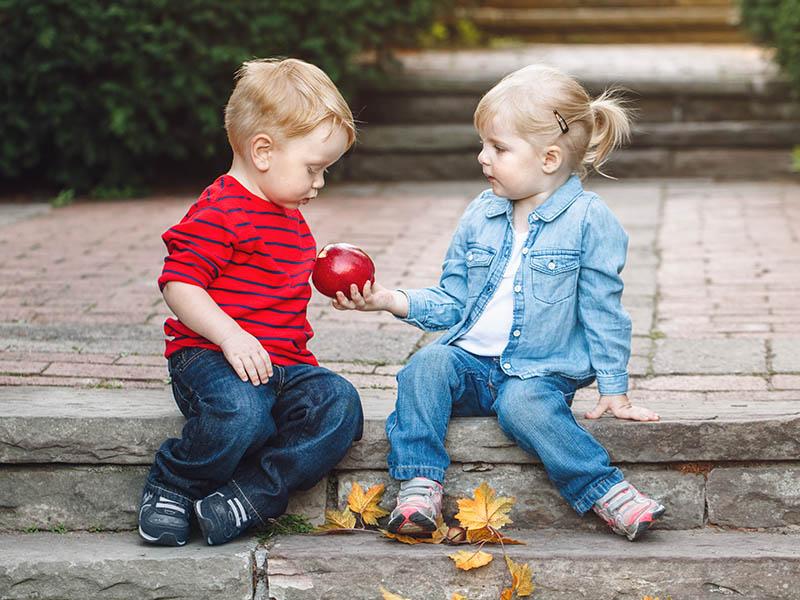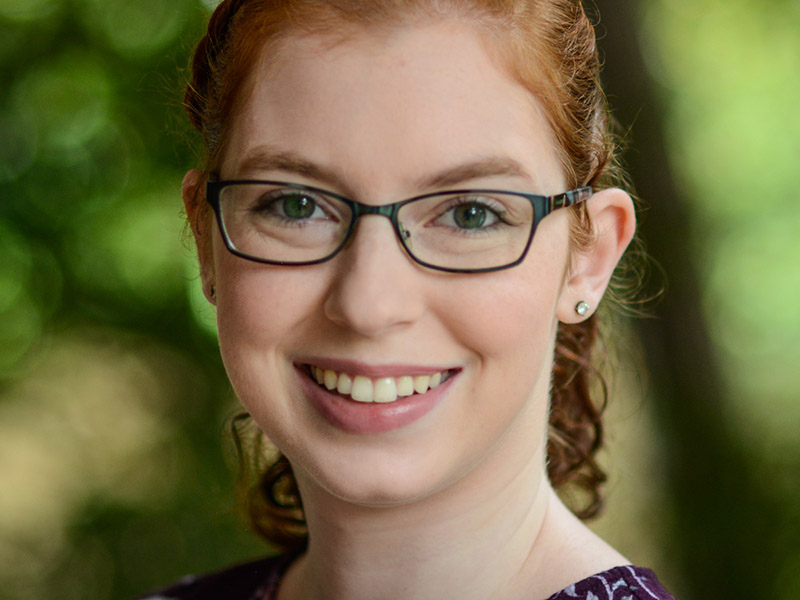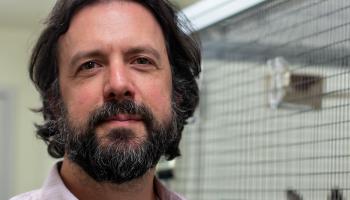Are We Born Fair?

How do you feel about sharing? Whether you like it or you don’t, most adults know that it's the right thing to do, and research by Johanna Chajes, a doctoral candidate in the College and Graduate School of Arts & Sciences’ Department of Psychology, suggests that even though the impulse to cooperate with others is a fundamental characteristic of human nature it’s not a behavior we’re born with; it’s a skill that children learn gradually by watching others, and it’s something that takes time and practice to master.
“Social heuristics” is the term psychologists use to describe the decision-making strategies or rules of thumb that make it a little easier to navigate the uncertainties of adult life, strategies that help us decide things like where to buy a car, how to vote, or what to say to a grieving co-worker. If you’re not an automotive engineer or a financial wizard, buying a car can be an extremely complicated process, so we usually simplify these kinds of decisions by choosing a dealership or a brand based on a friend’s recommendation, or we vote for a party instead of a candidate or we buy a greeting card for a bereaved colleague and sign our name under the words of condolence that are already written inside. While the approach isn’t always perfect, it usually works well enough.
When it comes to the idea of fairness, research shows that our tendency to be cooperative with those around us is an intuitive behavior and one that’s essential to building functional communities and institutions. When we find ourselves in social situations where we don’t know how to behave and we have limited information about how to interact with others, the social heuristic we tend to apply is to assume that cooperation is going to produce the best results for everyone. And over time, as we see those benefits in our interactions with others, the tendency toward fairness becomes even more automatic.
“That makes it an inherently developmental question,” said Chajes, a fifth-year graduate student whose research focuses on developmental psychology and neuroscience.
The idea that we might tend to choose fairness more readily after experiencing its benefits means that fairness is something that’s learned over time and that it’s shaped by one’s life experiences. There’s considerable research on fairness in adults suggesting that willingness to cooperate appears to be an intuitive response in studies where they’re given the opportunity to share resources with others they may know nothing about. However, there’s little research focusing on the issue in children. For Chajes, that presented an opportunity to explore the issue of the origins of that seemingly intuitive response from a new perspective.
“We looked at kids between the ages of four and nine and using similar kinds of methods to see if fairness is an intuitive and easy decision to make, or if not, when it emerges,” Chajes said.

Designing tests of fairness in adults usually involve asking them to make decisions about small amounts of money, dividing resources fairly among other people participating in the study. For children, though, the concept of keeping or giving away money was too abstract for the age group Chajes wanted to study. Instead, she chose to use a commodity that no child can resist: stickers.
“Kids get really excited about stickers, so we designed a task where we showed kids two different ways to give out the stickers to themselves and another child. One was more selfish where they could choose to keep three and the other child would get one and one where they would both get two,” Chajes said.
Children in the experiment were given the opportunity to practice before making their choice so it was clear to them what each choice would mean, but the study also minimized the social implications of the choice by explaining that they did not know the recipient. The subjects were then allowed to take as much time as they needed to make a choice. Afterward, they were asked why they made the choice they did.
What Chajes found was that there was a stark contrast between children in the 4-6 age group and those in the 7-9 range.
“We found that the younger children were much more likely to choose the selfish distribution, and they justified their choice by saying that they wanted more stickers,” Chajes said. “And then the kids in the 7-9 range just flipped. They were much more likely to choose the fair option and to justify it by saying they wanted to be fair.”
She also found that the younger kids who chose the selfish option made their choices more quickly, while those who made the fair choice did so more slowly and more deliberately. For the older kids, reaction times were about the same regardless of the choice they made.
Her findings, published in the Journal of Experimental Child Psychology in an article called “Fairness takes time: Development of cooperative decision making in fairness context” make her one of the first to suggest that the idea of fairness is not an intuitive response for children and that it only begins to influence children’s behavior at about seven years of age.
“Kids as young as three understand that fairness is the right thing to do, but a lot of the time their behavior doesn’t match up; whereas, it’s around age seven that kids’ behavior starts to align with the societal norm of fairness and where they know it’s the right thing to do and it also becomes really important to them to behave that way.”
The differences in the time children take to make their decisions also confirms the importance of looking at the issue as a developmental one.
“Fairness is something that’s learned over time and gradually, through experience,” Chajes said. Even if an older child chooses the fair option, Chajes added, it seems like the choice is still a difficult one for them to make, and they don’t make it as quickly or as intuitively as an adult would.
The study has important implications for how children are taught about fairness in school and at home and how parents and educators can manage their expectations of children at different stages in their development, Chajes suggested.
It’s important for adults to know that even when young children understand that they should behave fairly, it isn’t always easy for them to act that way, but teaching them to value cooperation and caring for others is an important part of shaping who they’ll become.
In addition to the work she does in the lab, Chajes is also committed to working with programs like UVA’s Living Lab, a community outreach program sponsored by the Department of Psychology that helps get kids and their families excited about cutting-edge science in psychology and neuroscience through partnerships with the Virginia Discovery Museum, the Science Museum of Virginia and Charlottesville’s Gordon Avenue Library. She also finds it important to invest her time in mentoring the department’s undergraduates.
Chajes recently formed a partnership with Hailey Costello, an undergraduate and lab coordinator for the College’s Early Social Development Lab, to conduct a follow-up study that examines the time it takes children to make fairness decisions to see if limiting the time children have to make their choices will give them a deeper insight into the behavior. The project has earned the pair a Double Hoo Award, a grant sponsored by the Office of the Executive Vice President & Provost that provides funding for undergraduate and graduate research collaborations.
“We don't really know what we're going to see, which is kind of exciting,” Chajes said. “And hopefully, we’ll have something unique that we can contribute to the conversation that psychology is having about intuitive cooperation.”
“Johanna’s elegantly designed study is important for understanding that younger kids may need more time, explanation and scaffolding by adults to act in ways that are fair to others,” said Jessica Stern, a postdoctoral fellow with the Department of Psychology whose research focuses on how social relationships shape human health and wellbeing.
“In my observations of Johanna, I am continually struck by her generosity of spirit when mentoring undergraduate researcher assistants, and I admire her commitment to engaging the community in research through UVA's Living Lab program,” Stern said. “Johanna models the concepts she studies—namely, cooperation, fairness, and wholehearted investment in the development of the next generation of young scientists.
“Johanna is a tremendously talented and competent graduate student with a promising career ahead of her,” said Tobias Grossman, a professor of psychology at UVA and co-author of “Fairness takes time.”







